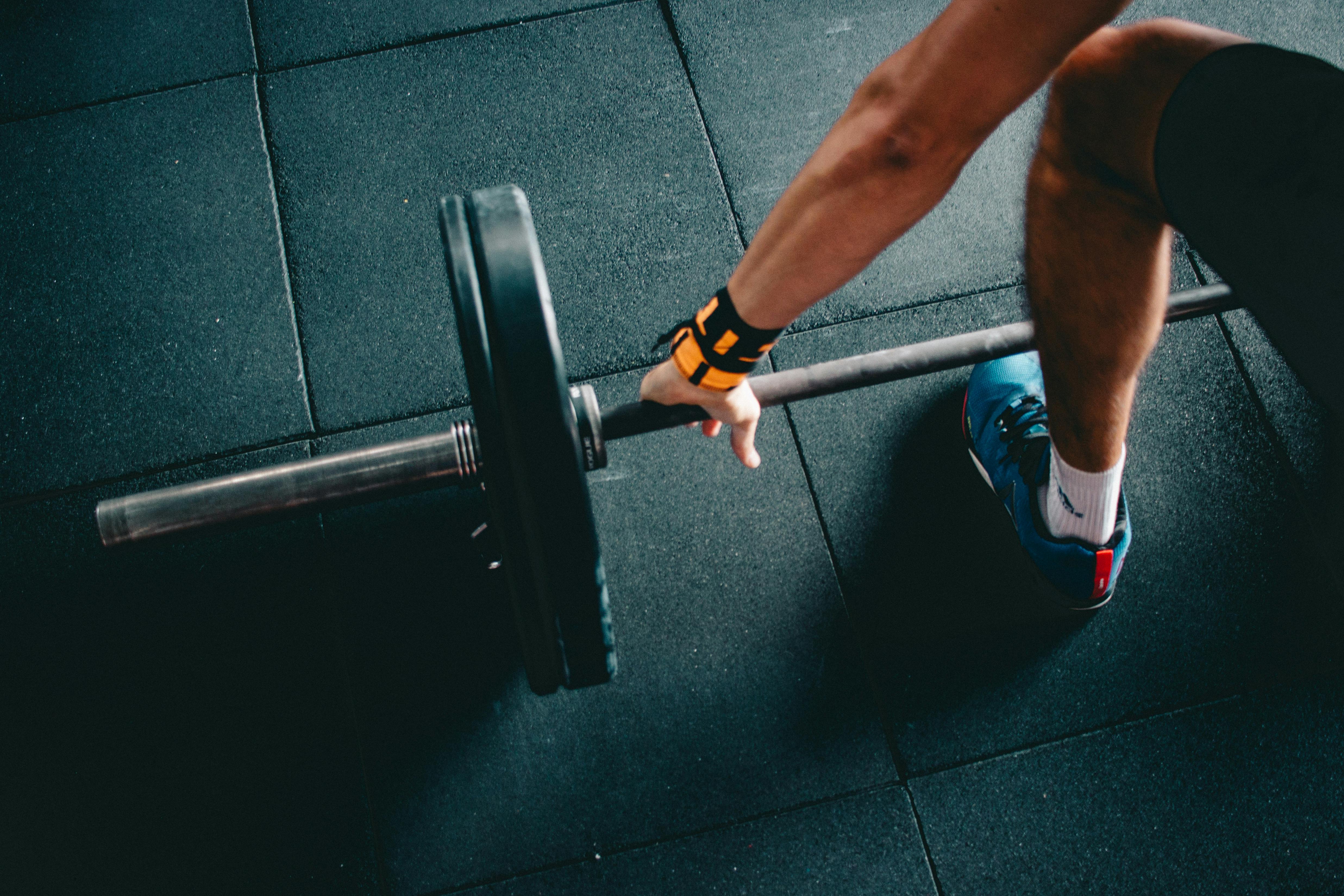The Ultimate Guide to Bodybuilding
What is Bodybuilding?
Bodybuilding is a form of exercise that focuses on building and sculpting the body through a combination of weightlifting, cardiovascular exercise, and proper nutrition. It involves increasing muscle mass, reducing body fat, and improving overall strength and fitness levels.
Bodybuilding is not just about lifting weights; it is a lifestyle that requires commitment, dedication, and hard work. Whether you are looking to compete in bodybuilding competitions or simply want to improve your physique, bodybuilding can help you achieve your fitness goals.

This image is property of images.pexels.com.
Benefits of Bodybuilding
Bodybuilding offers a wide range of benefits beyond just physical appearance. It can improve your overall health, boost your self-confidence, and enhance your quality of life. By following a consistent bodybuilding routine, you can develop strength, endurance, and flexibility that will benefit you in all areas of your life.
Physical Benefits
One of the main benefits of bodybuilding is increased muscle mass, which can help you burn more calories at rest and increase your metabolism. This can lead to weight loss and a more toned appearance. Additionally, bodybuilding can improve your strength, endurance, and flexibility, making everyday tasks easier to perform.
Mental Benefits
Bodybuilding can also have significant mental benefits, such as improved self-confidence, stress relief, and better focus and concentration. When you set and achieve fitness goals, you can feel a sense of accomplishment that boosts your self-esteem. The discipline and dedication required for bodybuilding can also help you develop a strong work ethic and a positive mindset.
Getting Started with Bodybuilding
If you are new to bodybuilding, it’s important to start slowly and gradually increase the intensity of your workouts. Begin by focusing on basic weightlifting exercises that target major muscle groups, such as squats, deadlifts, and bench presses. Consult with a fitness professional to create a customized workout plan that meets your goals and fitness level.
Setting Realistic Goals
Before you begin bodybuilding, it’s essential to set realistic goals that align with your fitness aspirations. Whether you want to lose weight, build muscle, or improve your overall health, having specific, achievable goals can keep you motivated and on track. Start by defining your long-term objectives and then break them down into smaller, manageable milestones.
Creating a Workout Routine
A well-rounded workout routine is crucial for effective bodybuilding. It should include a combination of strength training, cardiovascular exercise, and flexibility training. Aim to work out at least 3-4 times per week, targeting different muscle groups each session. Make sure to include rest days in your routine to allow your muscles to recover and grow.
Nutrition and Diet
Proper nutrition is a critical component of bodybuilding. To fuel your workouts and promote muscle growth, you need to consume a balanced diet rich in lean proteins, complex carbohydrates, and healthy fats. Make sure to stay hydrated, avoid processed foods, and consider incorporating supplements like protein powder and creatine into your diet.

This image is property of images.pexels.com.
Weight Training Techniques
Weightlifting is a fundamental aspect of bodybuilding that helps build muscle, increase strength, and improve overall fitness. There are various techniques and methodologies to consider when designing a weight training program.
Progressive Overload
Progressive overload is a principle in weight training that involves gradually increasing the weight, reps, or intensity of your workouts over time. This approach helps challenge your muscles and stimulate growth. Start with a weight that allows you to perform 8-12 reps with proper form, and aim to gradually increase the weight as you get stronger.
Compound vs. Isolation Exercises
Compound exercises are multi-joint movements that engage multiple muscle groups simultaneously, such as squats, deadlifts, and bench presses. These exercises are highly effective for building strength and muscle mass. On the other hand, isolation exercises target specific muscle groups, like bicep curls or leg extensions. Incorporating both compound and isolation exercises into your routine can help you achieve a balanced physique.
Split Training
Split training involves dividing your workouts by muscle groups, such as upper body and lower body, to allow for greater focus and recovery. Common split routines include push-pull-legs, upper-lower, and body part splits. Experiment with different split training approaches to find what works best for your body and goals.
Tempo Training
Tempo training involves controlling the speed at which you lift and lower weights during an exercise. By varying the tempo of your repetitions, you can challenge your muscles in different ways and improve muscle growth and strength. For example, a slow eccentric phase (lowering the weight) can increase time under tension and enhance muscle development.
Cardiovascular Exercise
In addition to weight training, cardiovascular exercise is essential for overall fitness and health. Cardio helps improve heart health, burn calories, and increase endurance. Incorporate various forms of cardio, such as running, cycling, swimming, or HIIT (High-Intensity Interval Training), into your workout routine for optimal results.
Benefits of Cardio
Cardiovascular exercise offers numerous benefits beyond just calorie burn. It can improve cardiovascular health, increase lung capacity, reduce stress, and boost mood and mental clarity. By engaging in regular cardio sessions, you can enhance your overall fitness level and well-being.
Types of Cardio
There are many different types of cardio exercises to choose from, each offering unique benefits. Low-intensity steady-state cardio (LISS) involves steady-paced activities like walking or cycling at a moderate intensity for an extended period. High-intensity interval training (HIIT) alternates between short bursts of intense exercise and periods of recovery, maximizing calorie burn and cardiovascular benefits.
Cardio Tips
To get the most out of your cardio workouts, vary your routines, challenge yourself with interval training, and monitor your heart rate to ensure you are working at an appropriate intensity. Remember to warm up before and cool down after your cardio sessions to prevent injury and aid in recovery.

This image is property of images.pexels.com.
Nutrition and Supplementation
Proper nutrition is key to achieving your bodybuilding goals. Your diet should support muscle growth, repair, and recovery, and provide energy for workouts. In addition to whole foods, supplements can enhance your performance and fill in any nutrient gaps in your diet.
Macronutrients
Macronutrients are the three main components of nutrition: protein, carbohydrates, and fats. Protein is essential for muscle repair and growth, while carbohydrates provide energy for workouts and fats support hormone production and metabolism. Find a balance of macronutrients that works best for your body and fitness goals.
Micronutrients
Micronutrients are vitamins and minerals that play crucial roles in overall health and well-being. Make sure to consume a variety of fruits, vegetables, and whole grains to ensure you are getting an adequate intake of essential micronutrients. Consider taking a multivitamin or specific supplements if you have nutrient deficiencies.
Hydration
Staying hydrated is essential for optimal performance and recovery. Aim to drink at least 8-10 glasses of water per day, and more if you are engaging in intense workouts or live in a hot climate. Proper hydration supports muscle function, digestion, and nutrient absorption.
Supplements
Supplements can complement your diet and workout routine, filling in any nutritional gaps and enhancing performance. Popular supplements for bodybuilders include protein powder, creatine, branched-chain amino acids (BCAAs), and pre-workout formulas. Consult with a healthcare provider or nutritionist before adding new supplements to your regimen.
Rest and Recovery
Rest and recovery are equally important aspects of bodybuilding as training and nutrition. Adequate rest allows your muscles to repair and grow, preventing overtraining and injury. Incorporate rest days into your workout routine, prioritize quality sleep, and use recovery techniques like stretching and foam rolling.
Importance of Rest
Rest days are crucial for muscle recovery and growth. When you work out, you create micro-tears in your muscles that need time to repair. Not allowing enough rest can lead to overtraining, fatigue, and decreased performance. Listen to your body and schedule regular rest days to prevent burnout.
Sleep Quality
Quality sleep is essential for overall health and wellness. Aim to get 7-9 hours of uninterrupted sleep each night to support muscle recovery, hormone balance, and cognitive function. Create a bedtime routine, limit screen time before bed, and ensure your sleep environment is dark, quiet, and comfortable.
Recovery Techniques
Incorporating recovery techniques into your routine can help alleviate muscle soreness, improve flexibility, and prevent injuries. Stretching, foam rolling, massage, and contrast therapy (alternating hot and cold treatments) are effective methods for accelerating recovery and enhancing performance. Experiment with different recovery techniques to find what works best for you.
Bodybuilding Supplements Guide
Supplements can be a valuable addition to your bodybuilding regimen, providing nutrients that support muscle growth, recovery, and performance. It’s important to choose high-quality supplements from reputable brands to ensure safety and efficacy.
Protein Powder
Protein powder is a staple supplement for bodybuilders, as it helps meet their increased protein needs for muscle repair and growth. Whey protein, casein protein, and plant-based protein powders are popular options that can be consumed post-workout or throughout the day to support muscle recovery.
Creatine
Creatine is a naturally occurring compound in the body that helps produce energy during high-intensity exercise. Supplementing with creatine can increase muscle strength, power, and endurance, making it a popular choice for bodybuilders and athletes. Consider taking creatine monohydrate before or after workouts for optimal results.
Branched-Chain Amino Acids (BCAAs)
BCAAs are essential amino acids that play a key role in muscle protein synthesis and recovery. Supplementing with BCAAs can help reduce muscle breakdown, increase muscle growth, and enhance exercise performance. Consuming BCAAs before, during, or after workouts can support muscle repair and recovery.
Pre-Workout Formulas
Pre-workout formulas are designed to enhance energy, focus, and performance during workouts. They typically contain ingredients like caffeine, beta-alanine, and citrulline malate that help increase alertness, reduce fatigue, and improve blood flow to working muscles. Use pre-workout formulas as directed to maximize their benefits.
Conclusion
Bodybuilding is a challenging yet rewarding fitness pursuit that can transform your physique, health, and mindset. By following a structured workout routine, prioritizing proper nutrition, and incorporating rest and recovery strategies, you can achieve your bodybuilding goals and unlock your full potential. Remember that consistency, patience, and dedication are key to success in bodybuilding. Embrace the journey, stay focused on your goals, and enjoy the incredible benefits that bodybuilding has to offer. Start your bodybuilding journey today and become the best version of yourself!